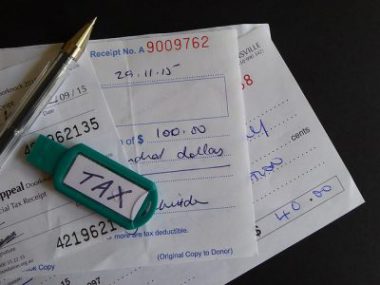
The Tax Court held that a married couple, a college professor and a librarian could not deduct as unreimbursed business expenses the costs of their home Internet expenses, cellular phone expenses, computer equipment expenses, and professional library and satellite television expenses (Tanzi v. Commissioner, T.C. Memo 2016-148). During the first half of 2011, the taxpayers were employed by a state college. The husband taught math and communications classes as an adjunct professor, and the wife was employed as a campus librarian. The husband is highly educated, with a doctorate in communication.
As he explained at trial, individuals holding such degrees bear a lifelong burden of “developing knowledge, finding knowledge, exploring, [and] essentially self-educating.” The husband therefore insisted that all expenses paid in adding to his “general knowledge” should be deductible as unreimbursed employee business expenses.
On Schedule A of their Form 1040, U.S. Individual Income Tax Return, the taxpayers deducted: (1) 100 percent of their phone, Internet, and television expenses — all of which they classified as “electronic support;” (2) depreciation expenses for assets allegedly purchased in prior years; (3) expenses incurred in purchasing books, DVDs, and CDs for a “professional library;” and (4) computer equipment expenses.
The Court first addressed the deduction for home Internet expenses. A taxpayer may deduct the cost of home Internet service pursuant to §162 if the expense is ordinary and necessary in the taxpayer’s trade or business (T.C. Memo 2010-191). To the extent that the home Internet expense is attributable to nonbusiness use, it constitutes a nondeductible personal expense. The taxpayers argued they were entitled to a $741 deduction for home Internet expenses. The taxpayers provided receipts showing they paid the expenses. The husband argued he should be entitled to deduct the full amount on the basis that all Internet access contributed to increasing his “general knowledge.” The Court found this argument unpersuasive. Use of the Internet in the pursuit of “general knowledge” is not an ordinary and necessary business expense for a college professor. It is more in the nature of a personal expense. Accordingly, the Court ruled that taxpayers were not entitled to deduct their home Internet expenses.
The taxpayers next argued that they were entitled to a $2,288 deduction for cellular phone expenses, and provided copies of their cellular phone statements showing they paid the expenses. However, they did not establish the extent they used the cell phones for business purposes relative to total use –they simply deducted the entire amount. Since there was insufficient evidence in the record to reasonably estimate and allocate an appropriate amount for deduction, the Court disallowed the deduction for cellular phone expenses.
Similarly, the taxpayers argued that they were entitled to a $719 deduction for computer equipment expenses. However, the evidence in the record showed only two receipts for computer equipment expenses totaling $64, and moreover, the taxpayers did not show the amount of the business use of the property relative to the total use of the property. They generally asserted that a computer was necessary for their jobs as education and library professionals. The Court ruled the evidence inadequate and accordingly disallowed the deduction for computer equipment expenses.
The taxpayers also argued that they were entitled to deduct $2,028 spent on maintaining a professional library of books, CDs, and DVDs. They also argued that they were entitled to deduct $1,826 spent on a DirecTV subscription, and provided bills and receipts showing they paid the expenses.
In support of their deductions, the taxpayers yet again argued that the expenses were ordinary and necessary to their trades because they must constantly expand their “general knowledge” to be effective at their jobs.
Again, the Court found this argument unpersuasive. The expenses were not ordinary and necessary to their trades but were rather in the nature of personal expenses. None of the expenses were a condition of their employment. The husband even admitted that he was aware of no university that requires professors to purchase these additional materials and services in carrying out their jobs. Accordingly, the taxpayers were not entitled to deduct satellite television expenses or the costs of maintaining their professional library.
In total, the Court held that none of the unreimbursed employee business expenses in dispute were deductible. Despite the fact that the Court found credible the taxpayers’ testimony that they spent significant time and resources educating themselves, the expenses were not ordinary and necessary for the trades of being a professor or a campus librarian but rather were nondeductible personal, living, or family expenses.
Looking for an update on individual tax? Attend one of Surgent’s individual tax webinars.
Dennis P. Benvie MS, CPA is Director, Tax and Advisory Content, for Surgent Professional Education. He has been in practice for more than 30 years and has been a national CPE Discussion Leader for 25 years.




